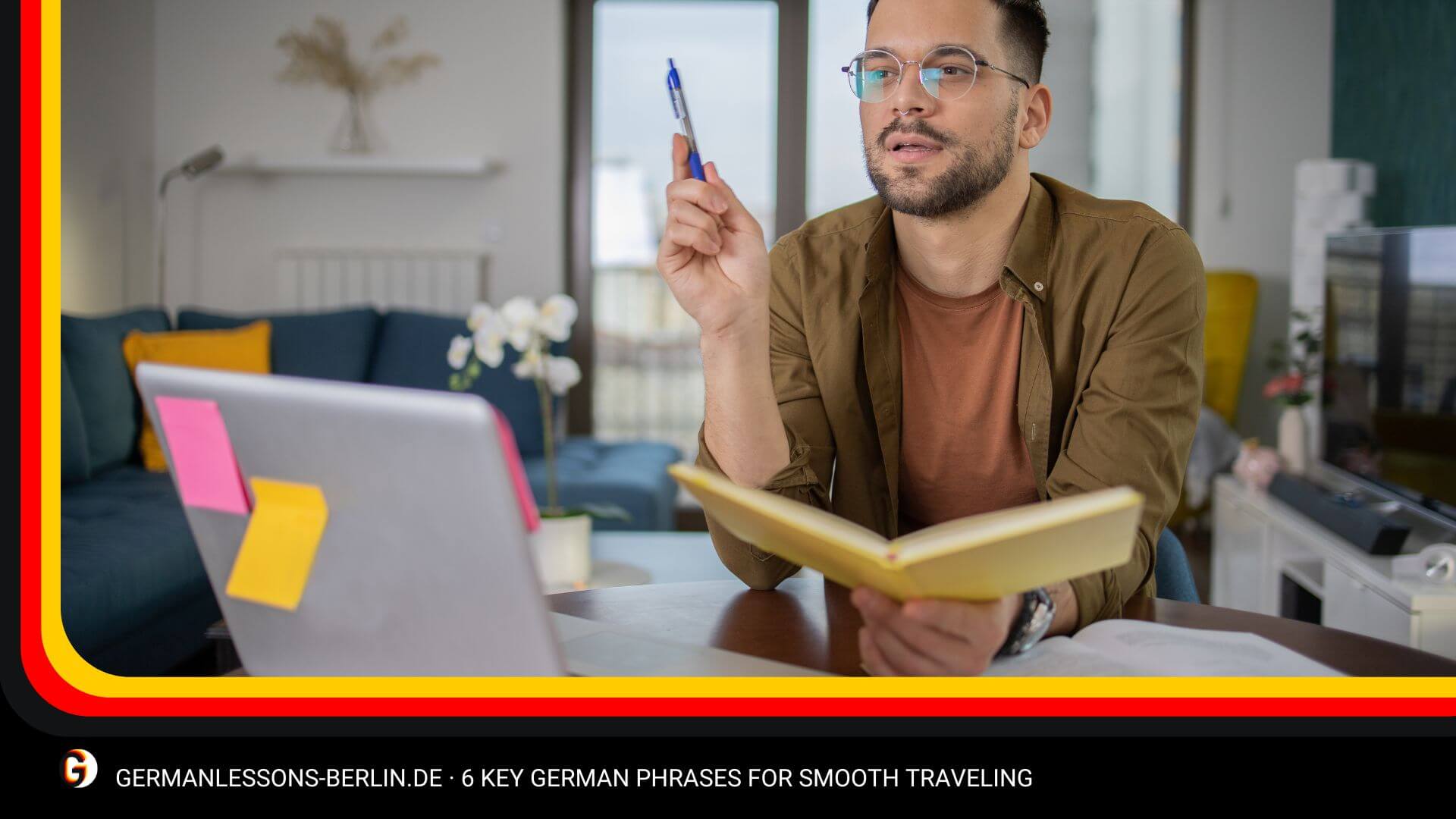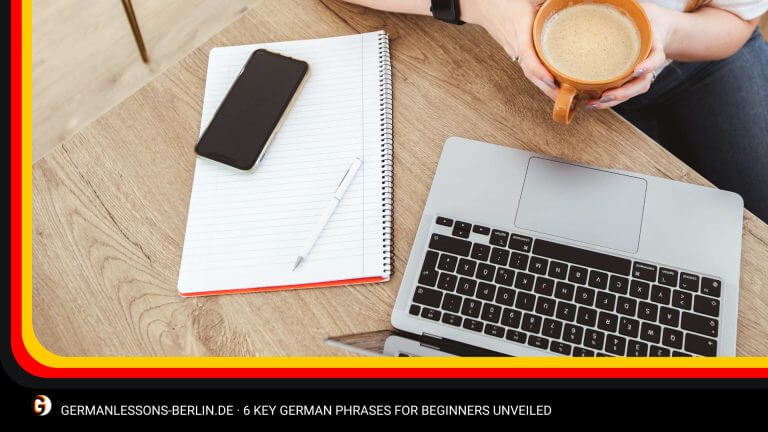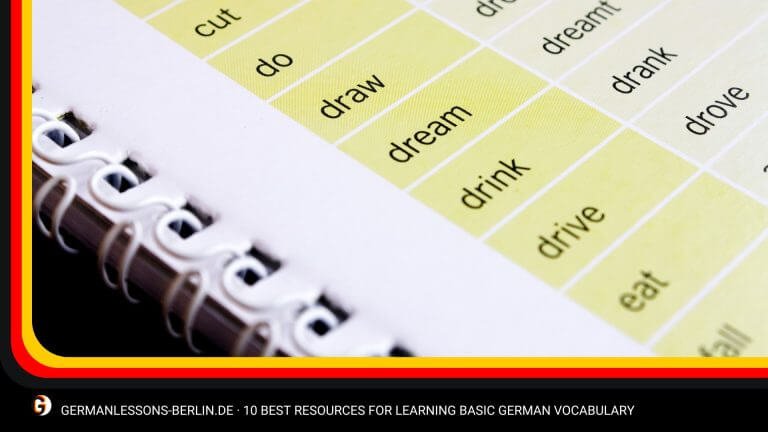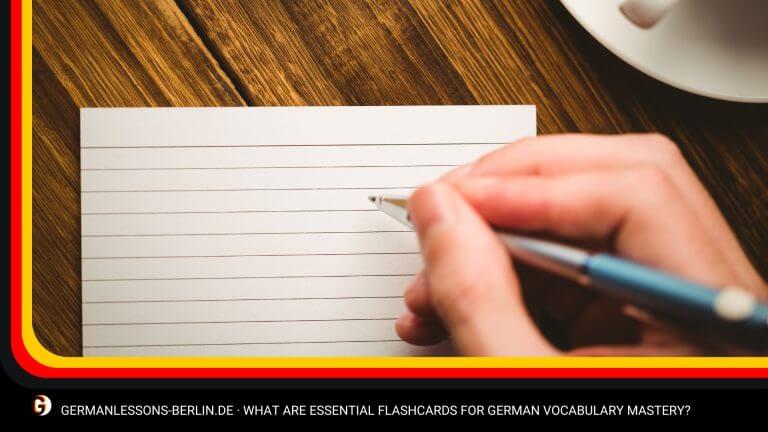I’m excited to share six key German phrases that’ve made my travels smoother and more enjoyable. Whether hailing a taxi, savoring local dishes, or making new friends, these expressions are my go-to for a hassle-free journey. They’re simple, yet they pack a punch in connecting with locals and navigating Germany’s vibrant cities and quaint towns. So, let’s unlock the ease of travel with the power of language—I promise, it’s a game-changer!
Table of Contents
Key Takeaways
- Greetings and farewells: Learn how to say hello and goodbye in German to politely interact with locals.
- Politeness expressions: Familiarize yourself with common expressions such as please, thank you, excuse me, and I’m sorry to show respect and politeness.
- Directions and navigation: Learn basic phrases to ask for directions and navigate through the city, such as asking for locations, showing the way, and understanding basic directions.
- Dining and cuisine requests: Know useful phrases to order food, ask about vegetarian options, request the menu, and inform about any allergies you may have.
Greetings and Salutations
Mastering a traveler’s essential greetings is key to unlocking friendly interactions throughout Germany. Whenever I step into a quaint café or stroll through bustling marketplaces, I start with a cheerful “Hallo!” or “Guten Tag!”—a universal greeting that works at any time of day. In the mornings, I make it a point to say “Guten Morgen,” and as evening draws in, “Guten Abend” sets the right tone. When I’m unsure about the time of day, “Grüß Gott” in southern Germany or “Moin” in the north are fail-safe options. Departing with a polite “Tschüss” or the more formal “Auf Wiedersehen” always leaves a good impression. These simple phrases have opened up countless warm exchanges, making my journeys through Germany infinitely more enjoyable and connective.
Essential Politeness Expressions
In my travels, I’ve found that a few courteous expressions can go a long way in fostering goodwill with the locals. When I’m in Germany, I make sure to have these essential politeness expressions at the tip of my tongue. They’re simple, yet they make interactions smoother and more pleasant. Here’s a quick list that never fails to impress:
- Bitte (Please)
- Danke (Thank you)
- Entschuldigung (Excuse me)
- Es tut mir leid (I’m sorry)
- Könnten Sie mir bitte helfen? (Could you please help me?)
These phrases show respect and a willingness to engage with the culture, which often leads to a warmer reception and a richer travel experience. It’s amazing how these small efforts in communication can open doors to new friendships and opportunities.
Directions and Navigation
Navigating Germany’s cities and countryside becomes much simpler when you’ve got a handle on a few key directional phrases. I always start with the basics: “Wo ist…?” (Where is…?) to locate anything from the nearest restroom to a famous landmark. “Können Sie mir bitte den Weg zeigen?” (Can you please show me the way?) is invaluable when I’m lost. For public transport, “Welcher Bus/Zug fährt zum/zur…?” (Which bus/train goes to…?) gets me on the right track.
Understanding responses is crucial, so I’ve memorized “links” (left), “rechts” (right), “geradeaus” (straight ahead), and “zurück” (back). Armed with these phrases, I confidently navigate through bustling cities and serene landscapes alike, immersing myself in Germany’s rich culture without missing a beat.
Dining and Cuisine Requests
After getting familiar with directions, I’ve found that knowing how to articulate my dining preferences in German is just as essential for a satisfying journey. Whether I’m craving a particular dish or have dietary restrictions, being able to communicate effectively with restaurant staff enhances my dining experience significantly. Here’s a quick list of phrases I always keep handy:
- Ich hätte gerne… (I would like…)
- Haben Sie vegetarische Gerichte? (Do you have vegetarian dishes?)
- Kann ich die Speisekarte sehen? (May I see the menu?)
- Ein Tisch für eine Person, bitte. (A table for one, please.)
- Ich bin allergisch gegen… (I’m allergic to…)
Mastering these phrases has made ordering food in Germany a breeze and allowed me to savor the local cuisine without the stress of miscommunication.
Shopping and Transactions
While exploring markets and stores, I’ve found that a few key German phrases can make the difference in ensuring smooth transactions. Asking “Wie viel kostet das?” (How much does this cost?) is crucial when eyeing a price tag-less item. I always make sure to clarify payment methods by inquiring, “Kann ich mit Karte bezahlen?” (Can I pay with a card?), because not all places accept plastic. If I need a different size or color, I use “Haben Sie das in einer anderen Größe/Farbe?” (Do you have this in another size/color?). After a purchase, I don’t forget to ask for “Könnte ich bitte einen Beleg haben?” (Could I have a receipt, please?), which is handy for exchanges or tax refunds. These phrases have smoothed my shopping experiences, making transactions effortless and enjoyable.
Emergency and Assistance Phrases
Despite these precautions, I’ve still encountered situations where knowing a handful of emergency and assistance phrases in German has been indispensable. When you’re in a pinch, these expressions can be a real lifesaver. Whether it’s a medical emergency or just needing directions, being able to communicate in the local language can make a huge difference. Here’s a quick list to keep handy:
- Hilfe! – Help!
- Ich habe mich verirrt. – I am lost.
- Können Sie mir bitte helfen? – Can you help me, please?
- Ich brauche einen Arzt. – I need a doctor.
- Es ist ein Notfall. – It’s an emergency.
Remembering these phrases can offer peace of mind, knowing I’m prepared for unexpected situations while traveling in Germany.
Frequently Asked Questions
How Do I Address Someone if I’m Unsure About the Formal or Informal Tone in German?
I often find myself unsure whether to use “Sie” or “du” when speaking German. My tip? Lean towards “Sie” for a safe, formal approach—it’s respectful and widely accepted. If the person prefers a casual tone, they’ll likely suggest switching to “du.” This way, I avoid any awkwardness and ensure I’m not accidentally offending anyone by being too informal. It’s a simple strategy that’s served me well in various situations.
What Are Some Common German Idioms or Expressions That Travelers Might Encounter?
I’ve come across some intriguing German idioms on my travels that often pop up in conversation. Expressions like “Da steppt der Bär” (literally “The bear dances there”) meaning a lively event, or “Das ist nicht mein Bier” (“That’s not my beer”), which translates to “It’s not my problem,” are both humorous and insightful. They reflect the cultural nuances that can add so much depth to interactions while abroad.
How Can I Express My Dietary Restrictions or Allergies in German?
I’ve learned it’s crucial to communicate dietary restrictions or allergies clearly. In German, I’d say, “Ich habe eine Allergie gegen…” followed by the allergen. If I’m vegetarian, I’d mention, “Ich bin Vegetarier” or for vegan, “Ich bin Veganer.” This way, I ensure my needs are understood when ordering food. It’s a lifesaver to have these phrases down pat to avoid any health issues while enjoying the local cuisine.
What Are Some Phrases for Discussing Accommodations, Such as Hotel Amenities or Room Preferences?
I often find myself discussing hotel accommodations, keen to ensure my comfort. I’ll ask about amenities or specify room preferences, making sure I’ve got a quiet space with a view if possible. It’s about getting the details right – whether it’s inquiring about Wi-Fi or checking the pillow firmness. These conversations are vital for a satisfying stay, as they help me settle in and fully enjoy the new environment.
Are There Specific German Phrases That Are Useful for Understanding Cultural Events or Local Customs?
Absolutely, there are phrases in German that help grasp cultural events and customs. I often use “Was ist der Brauch hier?” to ask about local traditions. When I’m at events, “Können Sie das bitte erklären?” is my go-to for understanding what’s happening. Learning these expressions has opened doors to rich cultural exchanges and deepened my appreciation for the nuances of German-speaking societies. They’re not just useful; they’re essential for truly experiencing the local way of life.
Conclusion
Wrapping up, these six key German phrases have been my travel game-changers. They’ve not only smoothed my journey but also enriched my experiences across Germany. From a friendly ‘Guten Tag’ to a crucial ‘Hilfe!’, each phrase has opened a new door, inviting smiles and local insights. Trust me, a little German goes a long way. So, pack these linguistic gems along with your essentials, and you’re all set for an unforgettable trip. Auf Wiedersehen!








